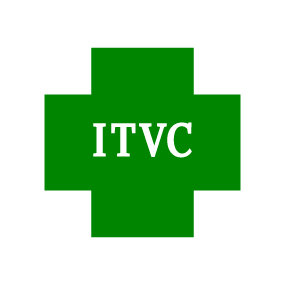Human infection with Avian Influenze A (H5N1) Virus
For a current list of countries reporting outbreaks of H5N1 virus infection among poultry and/or wild birds,Most cases of H5N1 influenza in humans are thought to have occurred from direct contact with infected poultry in affected countries. Contact with sick or dead poultry as well as with poultry that have no apparent symptoms should be avoided. Contact with surfaces that may have been contaminated by poultry feces or secretions should also be avoided.
Transmission of H5N1 viruses to two persons through consumption of uncooked duck blood may also have occurred in Vietnam in 2005. Uncooked poultry or poultry products, including blood, should not be consumed.
The public health threat of a pandemic arising from novel influenza subtypes such as influenza A (H5N1) will be greatly increased if the virus gains the ability to spread from one human to another. Such transmission has not yet been observed. However, a few cases of limited person-to-person spread of H5N1 viruses have been reported, with no instancesof transmission continuing beyond one person.
H5N1 infections in humans can cause serious disease and death. A vaccine to protect humans against influenza A (H5N1) is not yet available,. The H5N1 viruses currently infecting birds and some humans are resistant to amantadine and rimantadine , two antiviral medications commonly used to treat influenza. Most of the H5N1 viruses tested have been susceptible to the antiviral medications oseltamivir (Tamiflu®) and zanamivir (Relenza®), but resistance has been reported. The effectiveness of these drugs when used for treatment of H5N1 virus infection is unknown.
Persons visiting areas with reports of outbreaks of H5N1 among poultry or of human H5N1 cases can reduce their risk of infection by observing the following measures:
- Before any international travel to an area affected by H5N1 avian influenza
- Be sure you are up to date with all your routine vaccinations, and see travel doctor or health-care provider, ideally 4-6 weeks before travel, to get any additional vaccination medications or information you may need.
- Assemble a travel health kit containing basic first aid and medical supplies. Be sure to include a thermometer and alcohol-based hand gel for hand hygiene..
- Identify in-country health-care resources in advance of your trip.
- Check your health insurance plan or get additional insurance that covers medical evacuation in case you become sick.
During travel to an affected area:
Avoid all direct contact with poultry, including touching well-appearing, sick, or dead chickens and ducks. Avoid places such as poultry farms and bird markets where live poultry are raised or kept, and avoid handling surfaces contaminated with poultry feces or secretions.
As with other infectious illnesses, one of the most important preventive practices is careful and frequent handwashing. Cleaning your hands often with soap and water removes potentially infectious material from your skin and helps prevent disease transmission. Waterless alcohol-based hand gels may be used when soap is not available and hands are not visibly soiled.
All foods from poultry, including eggs and poultry blood should be cooked thoroughly. Egg yolks should not be runny or liquid. Because influenza viruses are destroyed by heat, the cooking temperature for poultry meat should be 74°C (165°F)
If you become sick with symptoms such as a fever accompanied by a cough, sore throat, or difficulty breathing or if you develop any illness that requires prompt medical attention, in Health Information for International Travel for more information about what to do if you become ill while abroad. You should defer further travel until you are free of symptoms-Visit http://www.smarttraveller.gov.au for more information
Note: Some countries have instituted health monitoring techniques, such as temperature screenings, at ports of entry of travelers arriving from areas affected by avian influenza. Please consult the Embassy of your travel destination country if you have any questions.
After your return:
Monitor your health for 10 days.
If you become ill with a fever plus a cough, sore throat, or trouble breathing during this 10-day period, consult a health-care provider. Before you visit a health-care setting, tell the provider the following:
- your symptoms,
- where you traveled, and
- if you have had direct contact with poultry or close contact with a severely ill person. This way, he or she can be aware that you have traveled to an area reporting avian influenza.
Do not travel while ill, unless you are seeking medical care. Limiting contact with others as much as possible can help prevent the spread of an infectious illness


